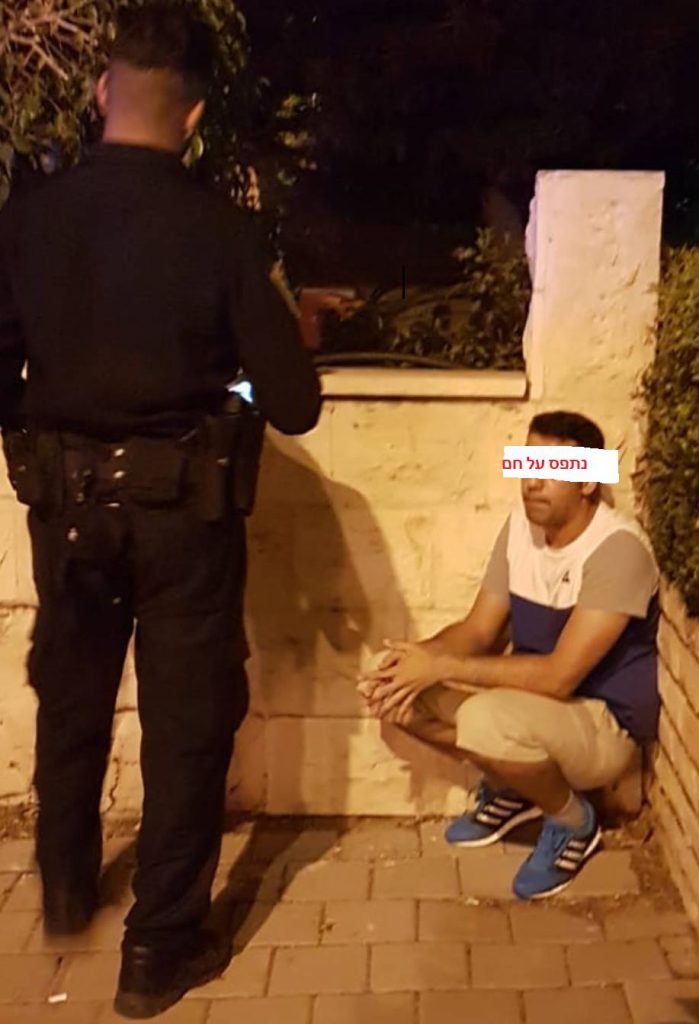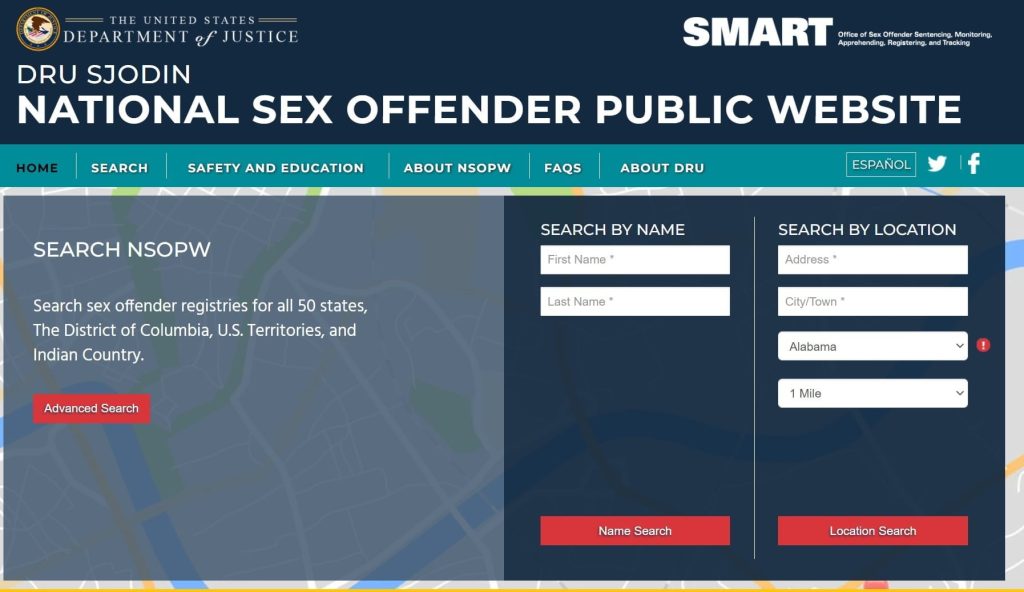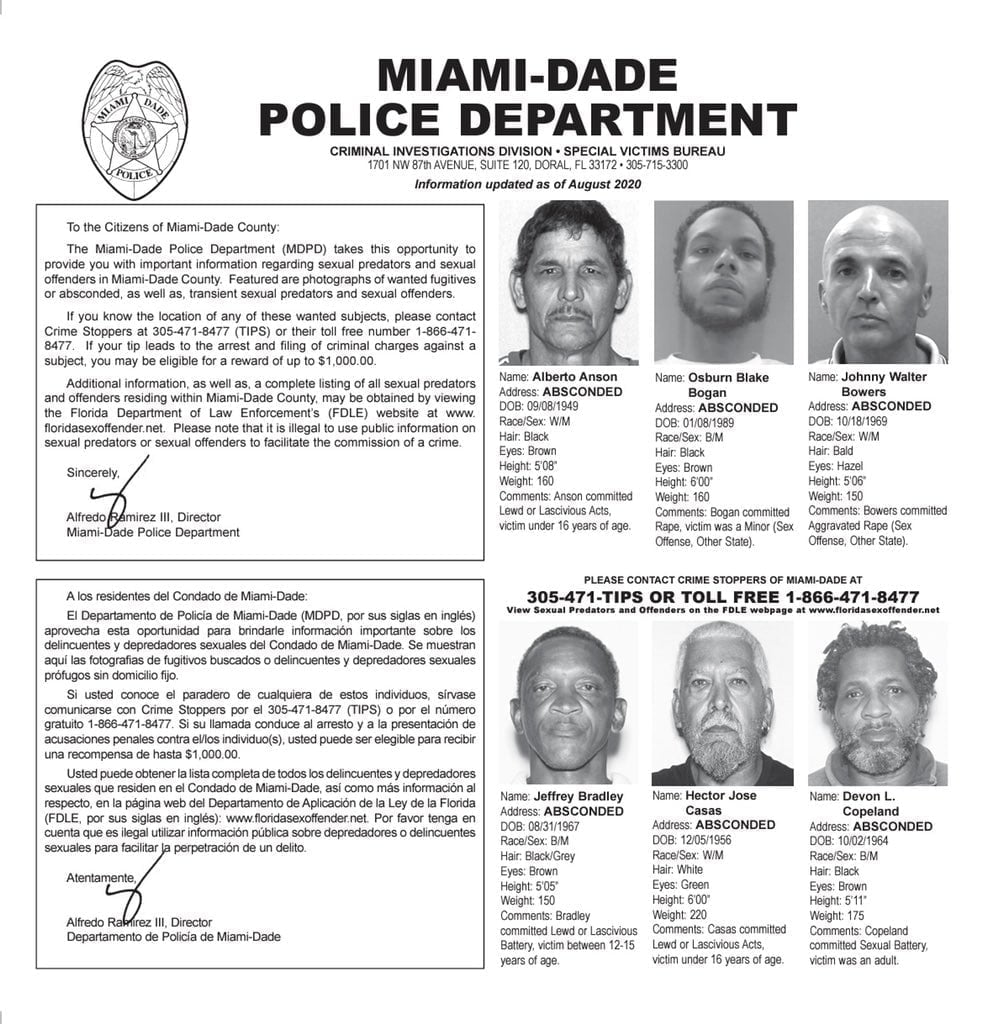The capture of pedophiles repeatedly raises the debate about the need for a public database, where the names of the convicted sex offenders living among us will be published. The opponents believe that “criminals will not be able to rehabilitate,” but what is the real reason?

The question of whether to provide information about a sex offender who ‘paid his debt’ and returned to live in the community also occupied the members of the Knesset and continues to occupy them. In the 17th Knesset, former MK Eli Afalo tried to initiate the establishment of a database on pedophiles. In addition, he suggested that sex offenders receive treatment A drug to prevent the sexual urge. However, this proposal was not approved. MK Oded Forer proposed a similar proposal, according to which, the information in the database will be managed by the director of the courts and will be open for public inspection. In the database will appear the names of criminals who have been convicted of pedophilia, except for those who are being treated with medication and those who have been convicted once and seven years have passed since that conviction. The proposal came up for discussion in the Committee of Ministers, but it postponed the discussion on its matter. And again recently several members of the Knesset submitted a similar proposal and nothing moved.
The bills that roll for decades in the Knesset without end
“There are arguments and opposition from the Ministry of Justice, mainly around the claim that it will not be possible for criminals to rebuild their lives and rehabilitate,” says MK Forer. “In the end, we realize that this story repeats itself. If a convicted pedophile does not deal with the problem, he will find himself committing the same offense again. If there is someone walking around among the children, the public should know about it and be able to defend themselves against him”.
According to MK Porer, he was required to draft the law after an application that reached him. “I was told about a kindergarten where one of the fathers is a convicted pedophile,” he says.
“‘it’ll be fine’ attitude”
According to a report compiled by the Knesset in 2010, it appears that every year on average about 100 offenders are convicted of sexual offenses against minors under the age of 13, when there is no family relationship between them and the victim or the relationship between them is unknown. In this regard, it is appropriate to make a distinction between pedophilia, a psychological disorder- sexual which means sexual attraction to children, and a sex offender who sexually exploits children and is not necessarily a pedophile.
According to the law, the Tsur unit of the prison service is supposed to monitor sex offenders, including pedophiles, who have been released from prison and have been defined as having a medium level of danger or higher. As of the end of 2015, their number was 1,049 people. The conditions of supervision are determined according to the type of offense for which the sex offender was convicted and include exclusion from places where children are, and even a ban on the use of mobile phones or computers. The supervision order is valid for up to five years.
“After this period of time, the supervision is over and that’s it, they can do whatever they want,” clarifies Eliran Melki, journalist and owner of the blog “Proctoblog”, which publishes a database of names and photos of convicted pedophiles. “Pedophilia is a mental illness that has no cure, you cannot take a pill and cure it. Chemical castration is proposed as a solution, but there are not enough studies on its effectiveness, and even if it reduces the risk, the State of Israel is not willing to finance the treatment.”

Avi Dubitsky, for or against a sex offender registry open to the public?
“I heard two main arguments against such a prescription. The first claims the right to privacy: if I committed a crime and paid my debt to society while I was in prison, it is impossible to continue to persecute the criminal for life. But a pedophile is sick with a disease, and sitting in prison did not cure his disease. He needs to be watched over and at the same time to warn the public against him. The second argument is that if the names of the perpetrators are exposed, people will harass them, beat them. In my opinion, this is nothing more than the state’s evasion. What is better? That a few idiots beat the pedophile or that he continue to rape children, ruin their lives and change the Their world from end to end?”.
And there are other claims against revealing the names of the convicted pedophiles. “These people need treatment,” says attorney Noga Wiesel, an expert in representing suspects in sex crimes. “If we publish their names, we will put a mark of Cain on them for life, and it will harm their treatment process and will not allow them to find work and rehabilitate. Why destroy them? The state’s goal is for them not to commit these offenses again.”
And what about the parents who fear that their children are in the vicinity of someone who has already committed a crime, and according to all the studies, is about to commit it again?
“You can’t execute them, right? And you can’t put them in cages after they’ve served their sentence. If so, the goal is for them not to offend again. But it’s the state’s responsibility to make sure that they are treated so that they don’t go in and out of prisons. If a criminal offends Again, a sign that he was not treated properly.”
on the safe side
Around the world, the question of publishing the name of pedophiles is treated differently. In the United States, for example, there is a public database where everyone can check which sex offenders live in the radius closest to their home. According to the law, the name of the offenders, their physical description, their address, the nature of the offense they committed and also a link to their probation officer are published on the website.
In the UK, those convicted of serious sexual offenses are required to register on the sex offenders and violent offenders register. The law authorizes the court to impose an obligation to provide details also on the parents of minor sex offenders. Also, the police are allowed to provide information about sex offenders to certain groups of people, including those who work with children, employers and homeowners.
The legislation in Canada does not regulate the reporting to the community, yet in some provinces the police allow information to be given to the public about the release of sex offenders who are defined as dangerous to the public by means of a public announcement through the media, which includes the name of the offender, his picture and additional information about him. And what do those who trust the welfare of the children say? Surprisingly, the Council for the Peace of the Child opposes the solution of establishing a public database. “The State of Israel has an important and good system of protecting children from convicted sex offenders,” says Vindman from the Council for Child Peace. “Experience from around the world shows that as soon as there was an open database, the criminals felt persecuted and went underground, changed identities and places of residence, and it was impossible to monitor them. Their dangerousness increased, and thus the company’s salary was at a loss.”
So in most countries of the world there is a register of sex offenders, and in Israel there is still none, how is this possible? Apparently those who are interested understand the economic consequences of having such a prescription in a small country like Israel. As soon as it is discovered that the neighbor is a sex offender, they will demand that he leave and the whole neighborhood will be hysterical. No one wants children to live in a building and go down the same elevator on a pedophile on the way to school. Real estate prices will drop wherever a pedophile is launched and this will violate the public peace. There is a very high probability that this is what will happen and rightly so.
In the meantime, we will continue to dream that things in Israel will be conducted as in a modern country where there is no price tag on children’s safety.
What to do and not to do if there is a fear of harm In your children through the Internet?
Since the activity of Dubitsky and “Caught Red-handed” deals only with the virtual space, the recommendations that will be given pertain to the internet, in any suspicion of harm by a teacher or a relative or a stranger, you should contact the police with all the evidence you have.
**.As soon as there is a concern that a “pedophile” has corresponded with one of your children, the first thing is not to get involved. Panic causes us to make mistakes and disrupt the possibility of reaching the perpetrator.
Remember that the chance of catching the offender is low and any mistake you make will reduce the chance of catching the offender.
1). preserve the evidence. Take a photo of all the correspondence you found on the child’s phone using another phone you have. See how you enter the application from the main screen and take photos of all the conversations including the photos so they can see everything. You must not be satisfied with taking screenshots of conversations, it turns out that there are ways to fake correspondence, so taking a video is a must!
2). Do not threaten the suspect that you are going to the police, at that moment the suspect can throw his phone into the Sea of Galilee and that will give the police a great reason to close the case. (They will look for any reason to close the case rather than investigate)
3). Do not make the suspect think that he is talking to an adult, such a thing will simply drive him to another boy or girl.
4). Did the person you suspect know the age of the boy or girl they corresponded with? As long as this does not appear clearly from the correspondence, no offense has yet been committed. For example, children usually indicate an older age than the real one in order to meet the threshold conditions for opening the account on Instagram which is 13 years.
5). If the age is not explicitly stated in the conversation, you can continue to correspond with a suspect and tell him the age, for example: “I am 5 years old in first grade.”
6). If the suspect continues to correspond and the conversation turns to sexual endings, then a crime has been committed and the material is due to be handed over to the police for examination. Remember! It is not a crime to correspond with a boy or girl in Israel, and the suspect can invite them for a face-to-face meeting and it is also not a crime, as long as there is no sexual sheikh, (or sending photos with sexual content), no crime has been committed.
7). A parent who is not skilled in corresponding with a suspect and does not know how to dub the suspect is better off turning to an expert who understands how to do this. This is a real art and not everyone can do it. Avi Dubitsky will be happy to help.
8). There are parents who run straight to the police without checking the things mentioned above and the police will tell them, don’t talk to him, block him, and let you go home. You probably won’t hear from them again. That’s why it’s important to bring them everything on a silver platter, including as many details as possible about that suspect. If it is possible to ask the suspect to talk on WhatsApp (this way you will get a phone number) do so. As long as the suspect initiates the sexual conversation, it falls under his responsibility, so it is important that you do not initiate it.
9). The police have the possibility to obtain details from social networks about users who are suspected of committing crimes against children. This takes time and they will not always find the identity of the suspect, so it is important that you try to gather as much information about the suspect as possible.
10). Calling Moked 105 will not guarantee handling of the complaint, it appearsState Comptroller’s Report The latter is therefore recommended to contact a nearby police station at the same time, and make sure that you have all the evidence at the time of filing the complaints.
The publication of the wicked who may harm children, in the USA.

